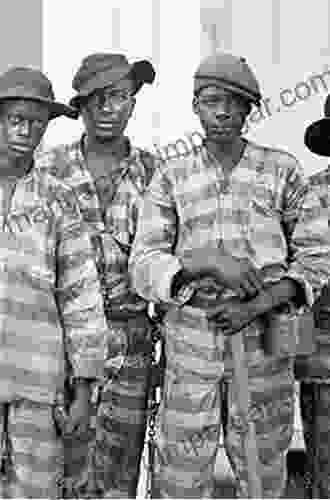Unlock the Secrets of the Past: Explore Social Theory in Archaeology and Ancient History

5 out of 5
| Language | : | English |
| File size | : | 11580 KB |
| Text-to-Speech | : | Enabled |
| Screen Reader | : | Supported |
| Enhanced typesetting | : | Enabled |
| Word Wise | : | Enabled |
| Print length | : | 382 pages |

: Unraveling the Enigma of Past Societies
Prepare to embark on an extraordinary journey through time as we delve into the intricate tapestry of social theory in archaeology and ancient history. This comprehensive guidebook provides an unparalleled lens into the complex workings of past societies, empowering you to understand the motivations, beliefs, and behaviors that shaped civilizations.
Through a captivating blend of archaeological excavations, historical texts, and theoretical inquiry, we will uncover the hidden threads that connect the present to the past. Discover how social structures, economic systems, and ideological beliefs left enduring imprints on the physical remains and cultural artifacts that archaeologists study today.
Chapter 1: The Foundations of Social Theory in Archaeology
Laying the groundwork for our exploration, Chapter 1 introduces the fundamental concepts and methodologies that underpin social theory in archaeology. We will trace the historical evolution of archaeological thought, examining how theoretical frameworks have evolved to interpret the material remains of past cultures.
Explore the pioneering contributions of scholars such as Gordon Childe, Lewis Binford, and Ian Hodder. Comprehend the diverse perspectives on social organization, social change, and the relationship between humans and their environment.
Chapter 2: Economy and Social Hierarchy in Ancient Societies
Moving beyond theoretical foundations, Chapter 2 delves into the economic and social hierarchies that defined ancient civilizations. We will investigate the diverse modes of subsistence, from hunter-gatherer societies to complex agrarian economies.
Uncover the interplay between economic factors and social stratification. Examine the emergence of elites, the division of labor, and the systems of power and inequality that shaped ancient societies.
Chapter 3: Ritual, Symbolism, and the Sacred
In Chapter 3, we explore the profound influence of ritual, symbolism, and the sacred on human behavior in the ancient world. Discover the intricate ways in which beliefs, myths, and ceremonies shaped social cohesion, political power, and the search for meaning.
Analyze the archaeological evidence of religious practices, from monumental temples to humble household altars. Investigate the role of shamans, priests, and other religious specialists in shaping the spiritual and social fabric of past communities.
Chapter 4: Gender, Identity, and Social Transformation
Chapter 4 delves into the multifaceted experiences of gender, identity, and social transformation in ancient societies. Explore the ways in which social roles, norms, and power dynamics were shaped by gender and identity.
Examine the archaeological evidence of gendered spaces, activities, and representations. Consider how social change, warfare, and economic transformations influenced gender roles and the fluidity of identity in the past.
Chapter 5: Urbanization, Social Complexity, and State Formation
As societies grew in size and complexity, urbanization emerged as a transformative force in human history. Chapter 5 investigates the social and political implications of urbanization, from the rise of cities to the development of state-level organizations.
Analyze the archaeological evidence of urban planning, architecture, and infrastructure. Explore the emergence of centralized authority, bureaucratic systems, and the challenges of managing large-scale social formations.
Chapter 6: Social Theory in Ancient History: Case Studies
To solidify our understanding of social theory in action, Chapter 6 presents a series of case studies drawn from ancient civilizations around the world. From the grandeur of ancient Egypt to the sophisticated city-states of Greece, we will delve into specific examples to illustrate the application of theoretical concepts.
Examine the interplay of social hierarchy, economic systems, and religious beliefs in shaping the rise and fall of civilizations. Discover how archaeological and historical evidence can provide insights into the social dynamics of complex ancient societies.
: The Enduring Legacy of Social Theory in Archaeology and Ancient History
In our concluding chapter, we reflect on the enduring legacy of social theory in archaeology and ancient history. We will explore the ways in which theoretical frameworks have shaped our understanding of the past and continue to inform present-day interpretations.
Assess the strengths and limitations of different theoretical approaches. Consider the ethical implications of archaeological research and the ways in which social theory can contribute to a more inclusive and nuanced understanding of human history.
Whether you are a seasoned archaeologist, an aspiring historian, or an enthusiast yearning to unlock the secrets of the past, Social Theory in Archaeology and Ancient History is your essential guide. Its comprehensive coverage, thought-provoking insights, and captivating case studies will empower you to explore the complexities of past societies with unparalleled depth and clarity.
Free Download your copy today and embark on an extraordinary journey into the captivating world of human civilization.
5 out of 5
| Language | : | English |
| File size | : | 11580 KB |
| Text-to-Speech | : | Enabled |
| Screen Reader | : | Supported |
| Enhanced typesetting | : | Enabled |
| Word Wise | : | Enabled |
| Print length | : | 382 pages |
Do you want to contribute by writing guest posts on this blog?
Please contact us and send us a resume of previous articles that you have written.
 Book
Book Novel
Novel Page
Page Chapter
Chapter Text
Text Story
Story Genre
Genre Reader
Reader Library
Library Paperback
Paperback E-book
E-book Magazine
Magazine Newspaper
Newspaper Paragraph
Paragraph Sentence
Sentence Bookmark
Bookmark Shelf
Shelf Glossary
Glossary Bibliography
Bibliography Foreword
Foreword Preface
Preface Synopsis
Synopsis Annotation
Annotation Footnote
Footnote Manuscript
Manuscript Scroll
Scroll Codex
Codex Tome
Tome Bestseller
Bestseller Classics
Classics Library card
Library card Narrative
Narrative Biography
Biography Autobiography
Autobiography Memoir
Memoir Reference
Reference Encyclopedia
Encyclopedia Christopher Wall
Christopher Wall Christopher D Duncan
Christopher D Duncan Chris Forhan
Chris Forhan Christopher B Cooper
Christopher B Cooper Neel Mukherjee
Neel Mukherjee Harriet Hawkins
Harriet Hawkins Matthew L M Fletcher
Matthew L M Fletcher Kenneth E Hamburger
Kenneth E Hamburger Joseph Mcbride
Joseph Mcbride James Low
James Low Elizabeth Murphy
Elizabeth Murphy Charles R Swindoll
Charles R Swindoll Charles Frankhauser
Charles Frankhauser Larry D Barnett
Larry D Barnett Christopher Mele
Christopher Mele Christopher Goffard
Christopher Goffard Christopher Upward
Christopher Upward Christina D Rosan
Christina D Rosan Fernando Santos Granero
Fernando Santos Granero Cheryl Savageau
Cheryl Savageau
Light bulbAdvertise smarter! Our strategic ad space ensures maximum exposure. Reserve your spot today!

 Gustavo CoxUnlock Your Brain's Potential: Proven Neuroscience Techniques to Conquer Fear...
Gustavo CoxUnlock Your Brain's Potential: Proven Neuroscience Techniques to Conquer Fear... Kenzaburō ŌeFollow ·17.8k
Kenzaburō ŌeFollow ·17.8k Dashawn HayesFollow ·14.7k
Dashawn HayesFollow ·14.7k John GrishamFollow ·19.8k
John GrishamFollow ·19.8k Jules VerneFollow ·5k
Jules VerneFollow ·5k Bill GrantFollow ·16.8k
Bill GrantFollow ·16.8k John GreenFollow ·7.3k
John GreenFollow ·7.3k Leslie CarterFollow ·16k
Leslie CarterFollow ·16k Darius CoxFollow ·16.9k
Darius CoxFollow ·16.9k

 E.E. Cummings
E.E. CummingsOne Man's Story of What It Meant to be Pj
In the tapestry of life,...

 Caleb Long
Caleb LongPattern Theory in Video Keno: Unveiling the Art of...
Embark on an enlightening journey into the...

 Douglas Adams
Douglas AdamsUnveiling the Diplomatic Landscape: The Ottoman Empire,...
Delving into the History...

 Terry Bell
Terry BellThere Still Is No Off Season: Embracing Year-Round...
In a world consumed by routine and the allure...

 Ibrahim Blair
Ibrahim BlairBrain Teasers Games and Puzzles: Exercise Your Mind with...
Prepare to embark on a captivating journey...
5 out of 5
| Language | : | English |
| File size | : | 11580 KB |
| Text-to-Speech | : | Enabled |
| Screen Reader | : | Supported |
| Enhanced typesetting | : | Enabled |
| Word Wise | : | Enabled |
| Print length | : | 382 pages |












